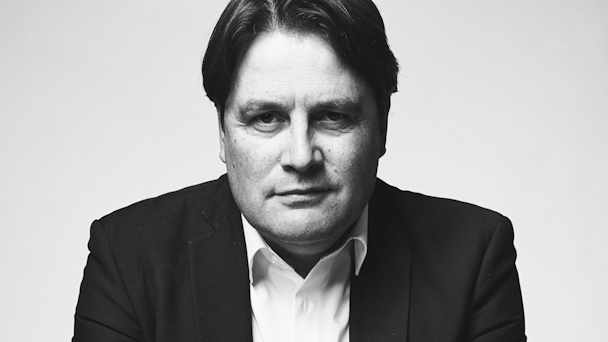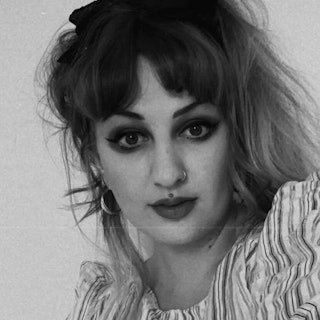My Creative Career: Bas Korsten, global CCO at Wunderman Thompson
Don't let an irrelevant degree stop you from pursuing a career in advertising. As part of the My Creative Career series, Bas Korsten talks about how a degree in logistics engineering led him to be one of the industry's top creatives.

Bas Korsten / Bas
As long as Bas Korsten can remember, he’s been a writer. It began with song lyrics, although be never dabbled with the music side as that didn’t come naturally, and progressed to a passion for foreign languages. But his father, a professor of English literature at the local university, warned him against trying to make a career for himself in that field.
Advertisement
“Logistics is the trade of the future,” Korsten remembers his father exclaiming. “He was right. I followed his advice and studied logistics engineering. I hated it.” Despite toying with the idea of dropping out altogether to learn Japanese, he persisted.
It was a compromise that would pay off, if not professionally, then personally, as Korsten eventually met his wife because of an internship. "The four years weren’t a complete waste," he laughs, adding that if anyone has questions about warehouses, he’s the guy to go to.
Pursuing a master’s degree in business eventually brought the marketing and advertising sector on to his radar. Until that moment, he had no clue that ad agencies even existed. “I thought that brands were making the ads themselves. I started writing faxes to agencies because that’s what you did then," he recalls.
He was invited to Leo Burnett’s Amsterdam office. Donning his best suit, Korsten made the two-hour trip to the city and plonked himself down nervously in the waiting room. “Where’s your portfolio?” asked the receptionist as the youngster looked blankly. He had written a letter and been invited. Nobody said anything about bringing work. The receptionist continued: “Oh and the creative director has no time to meet with you this morning.”
Advertisement
This minor setback aside, Korsten continued to fax, yes fax, ideas to people, who by his admission were started to get a little annoyed. One person wasn't though, and gave him an internship.
It was for a small agency in The Hague called HVR Group where he worked for clients like Nissan that really opened his eyes to the industry. It was like an epiphany, he says. People in the team began referring to him as ‘Seventeen’ because he would always come up with that exact number of ideas for any given brief. He says it forced him to go beyond the first, most obvious thought.
After a year at HVR, he made the move to DDB Amsterdam, where he would stay for five years. Within two years of arriving at the agency he was made creative director. He worked with Michael Jansen, who became his first real mentor.
“[Jansen] had a very disarming way of telling you that you weren’t there yet,” the creative laughs. “He would say things like, ‘Hey, I really liked it, but not as much as the one that I didn’t like yesterday’. That’s a very clever way of insulting somebody. I didn’t mind, I was inspired by that.” He knew that if something got approved, it was good.
DDB Amsterdam was the leading agency in The Netherlands at the time and the young creative was ambitious. “I started making lists of the 12 or 13 teams that were there and I was trying to rank myself. I was at the bottom when I started. I started ticking them off as I did work. There was a lot of competition then.”
Suggested newsletters for you
Korsten's next move would see him co-found agencies Selmore (which still exists) and Nothing Commercial Creativity. He considers both ventures a success, even if they weren’t as prosperous as he would have hoped. They weren’t different enough, he reflects, although he still chuckles at the thought of a hypothetical news article reading: 'Omnicom buys Nothing for $18m'.
“We focused so much on that headline,” he laughs. “Maybe we should have focused on making it a profitable agency and not having fun with the name.”
Leaving both behind him, his next role was creative director at J Walter Thompson Amsterdam – now Wunderman Thompson. The subsequent years would see Korsten climb the ranks to the top job of global chief creative officer at the agency.
On his favorite work that he has developed, he cites a conversation he had recently with McCann’s Javier Campopiano. “We met and he had done the Tide work and I had done the next Rembrandt campaign and he said: ‘Well, let’s just hope we’re not going to be known as The Tide Guy and The Next Rembrandt Guy. I said, ‘Let’s make sure we’re not’.”
A recent project that Korsten is proud of is The Mammoth Meatball. “From an impacting the world perspective, I think that is by far my most successful project,” he explains. “It’s been a long journey getting from an idea to a physical 15.3cm piece of mammoth meat.”
He also is immensely proud of the work produced at DDB Amsterdam Volkswagen because it is such an iconic brand with incredible history. “It felt like you were touching something sacred.”
Korsten believes in being creative every day. “I love ideas. I love brands and getting confronted with ideas to see if they are the best yet or if they can be improved on.
“I also need to have my own projects on the side. Often times these are based on technology or something that you know will be the talk of the town in the future. And I still write songs; my daughter can sing, which is great and I write lyrics for her. She was on The Voice.”
Getting back to the initial conversation about risk, Korsten says that he likes to go where the risk is highest because that’s usually where the reward is the biggest. With experience, of course, this becomes calculated but he enjoys the thrill of creativity not being a science. He advises young creatives not to play it safe, in order to make a difference, you need to stand out.
Like this story? Read our interview with Saatchi & Saatchi's Franki Goodwin.

